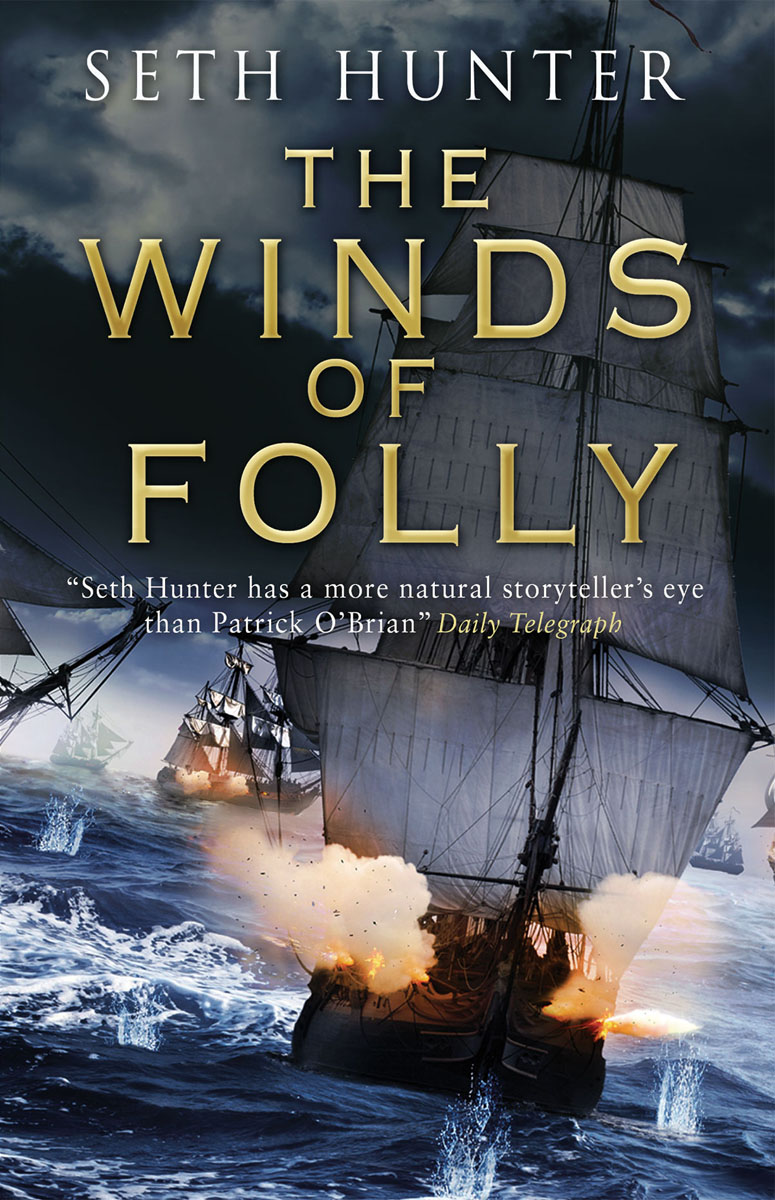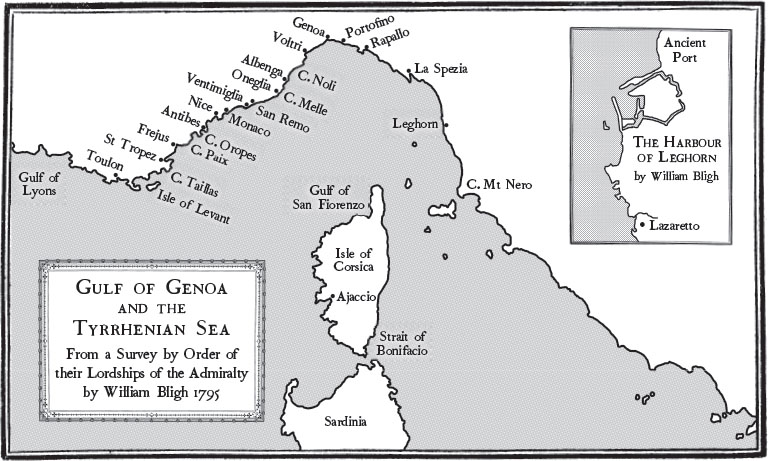Winds of Folly
Authors: Seth Hunter



Nathan Peake novels by Seth Hunter
The Time of Terror
The Tide of War
The Price of Glory
The Winds of Folly

Published by McBooks Press 2016
First published in Great Britain by Headline Review, an imprint of Headline Publishing Group, a Hachette UK company, 2012
Copyright © 2012 by Seth Hunter. The right of Seth Hunter to be identified as the Author of the Work has been asserted by him in accordance with the Copyright, Designs and Patents Act 1988.
All rights reserved, including the right to reproduce this book or any portion thereof in any form or by any means, electronic or mechanical, without the written permission of the publisher. Requests for such permissions should be addressed to McBooks Press, Inc., ID Booth Building, 520 North Meadow St., Ithaca, NY 14850.
Cover illustration © collaborationJS
Typeset in Sabon by Avon DataSet Ltd, Bidford-on-Avon, Warwickshire
Library of Congress Cataloging-in-Publication Data
Names: Hunter, Seth, author.
Title: The winds of folly : a Nathan Peake novel / Seth Hunter.
Description: Ithaca, New York : McBooks Press, 2016. | “2011 | Series: The Nathan Peake novels ; book 4
Identifiers: LCCN 2015042156 (print) | LCCN 2015045291 (ebook) | ISBN 9781590137055 (softcover) | ISBN 9781590137079 (EPub) | ISBN 9781590137062 (Kindle) | ISBN 9781590137086 ( Pdf)
Subjects: LCSH: Great Britain. Royal Navy--Officers--Fiction. | BISAC: FICTION / Sea Stories. | FICTION / Historical. | GSAFD: Historical fiction. | Sea stories.
Classification: LCC PR6108.U59 W56 2016 (print) | LCC PR6108.U59 (ebook) | DDC 823/.92--dc23
LC record available at
http://lccn.loc.gov/2015042156
Visit the McBooks Press website at
www.mcbooks.com
.
Printed in the United States of America
9 8 7 6 5 4 3 2 1
Apart from obvious historical figuresâall characters herein are fictitious and any resemblance to real persons living or dead, is purely coincidental.
For Pat


I am but mad north-north-west: when the wind is southerly I know a hawk from a handsaw.
Hamlet
, II. 2. 405.
The Devil's Carnival

May, 1796
T
he man known to his associates as Cristolfi, and to the rest of Venice as the Devil, passed unnoticed through the crowds on the Piazza San Marco. He wore a mask, of course, for it was
Carnevale
and most people were watching the fireworks, but such anonymity was rare in one whose status made him the most feared individual in the Republic. Indeed, so great was his notoriety, it was said that his mere presence on the fringes of a crowd was enough to disperse the most dangerous of rabble-rousers before they could make a proper nuisance of themselves.
But this was not always convenient for an agent of the Inquisitors, and so it was gratifying for him to hear the occasional murmurings of dissent from those who may have thought the pyrotechnics a sufficient distraction from their sedition and would have quaked in their elegant footwear had they comprehended that
Il Diavolo
was anywhere in the vicinity.
âI find it quite remarkable,' proclaimed one whose beaked
domino disguised his features but whose stout frame and lofty tone betrayed him as a prominent member of the Senate, âthat with a French army at our borders and the Treasury unwilling to expend a single ducat on our defences, the government finds it entirely within reason to waste a small fortune on fireworks. But then who am I to question the wisdom of our masters?
Ooooh!
' he exclaimed mockingly, a second or so later than the crowd, as another starburst splintered the velvet sky and a shower of red and golden rain descended upon the black waters of the lagoon.
âIt keeps the people happy,' his companion demurred, âand I dare say the money would be wasted whatever it was expended upon.'
Il Diavolo
smiled beneath his mask and made a mental note of these indiscretions, though his own private views were not dissimilar. Venice, the Most Serene Republic, mistress of the seas, the greatest maritime power in the history of the world â until the English stole her trade and the Turks her empire â was reduced to a mere hulk, floating on a tide of nostalgia, while a French army, inspired by the rhetoric of Revolution and the prospect of plunder, swept across northern Italy.
Cristolfi marvelled that the Republic continued to indulge her infinite capacity for pleasure in the face of a threat to her very existence, but then as the Doge had remarked to him not half an hour since: âWithout pleasure, my dear, what reason
is
there for our existence?'
Even so, to spend six months at Carnival and the other six preparing for it might be regarded as excessive by less indulgent rulers, Cristolfi reflected as he moved through the thinning ranks on the edge of the crowd. Nor did it make his job any easier to permit people to hide behind a mask for half the year: a cover for all manner of villainy and subversion.
He viewed the current crop from behind his own disguise: the plain white
volto
, the ghostly
bauta
and the effeminate
gatto
cat mask with its meowing admirers, the black velvet
moretta
â a popular choice with women these days â and of course the entire cast of the
Commedia dell'Arte
: Pulcinella, Pantalone, Scaramuccia and poor Arlecchino with his expression of astonished idiocy. Every subtle contrivance of the
mascherari
's art to intrigue and beguile the observer and afford the wearer a degree of anonymity, a measure of freedom from the constraints of conventional society. Or, as
Il Diavolo
expressed it more frankly to his subordinates, to bring out the beast in man and the harlot in woman.
He himself wore the mask of
Pedrolino
, the simpleton whose good and trusting nature makes him the target of tricksters and wrongdoers: the naive buffoon, unaware of what is happening around him. A small, private irony.
He moved on â into the warren of back streets behind the Doge's Palace, through a long, dark tunnel and over a bridge on to the
fondamenta
, the paved walkway along the canal: in this case more mud than paving, with pools of stagnant water that obliged Cristolfi to tread carefully in parts, feeling his way like a blind man with his stick. A gap opened on to the black void of the Basin, with a distant glimmer of the lights on the Isola San Giorgio. Into the dark canyons again, permeated now by the smell of the sea, or rather that particular smell of Venice â a distillation of seaweed, mud and effluvia, mingled with damp hessian and rotting wood, and the tantalising scent of spices: the smell of trade. Another canal, a backwater, its quietude disturbed only by the tap-tap of the Devil's cane on the
fondamenta
, the soft slap of water against stone and the clink of the boats at their moorings. And then the sudden startling screech of a rocket and the surroundings flaring into violent light, the buildings revealing their own mask-like
façades, with the black eyeholes of countless windows arched in astonished wonder.
He met no one in the streets, but once, crossing another bridge, he saw a gondola come gliding out of the shadows like a sleek black swan and there was a clink of glass or jewellery and a seductive chuckle from within the silk-shrouded cabin before it slid away into the night.
On he walked into a deeper, denser labyrinth until, as happened in Venice, he moved abruptly from darkness into light. Light and laughter, loud conversation and music. His instinctive reaction was to draw back into the shadows, from which vantage he viewed the fantastic spectacle of the Rio della Pietà filled with boats of every size and description, from the slender gondolas to fat barges, all ablaze with flambeaux and packed with spectators, heads craned to watch the fireworks â though not a few, Cristolfi noted, were gazing with equal rapture at the immodestly dressed young women leaning from the balconies of the Convent of San Paolo di Mare, itself so brilliantly illuminated it appeared to float on its own reflection in the waters of the canal.